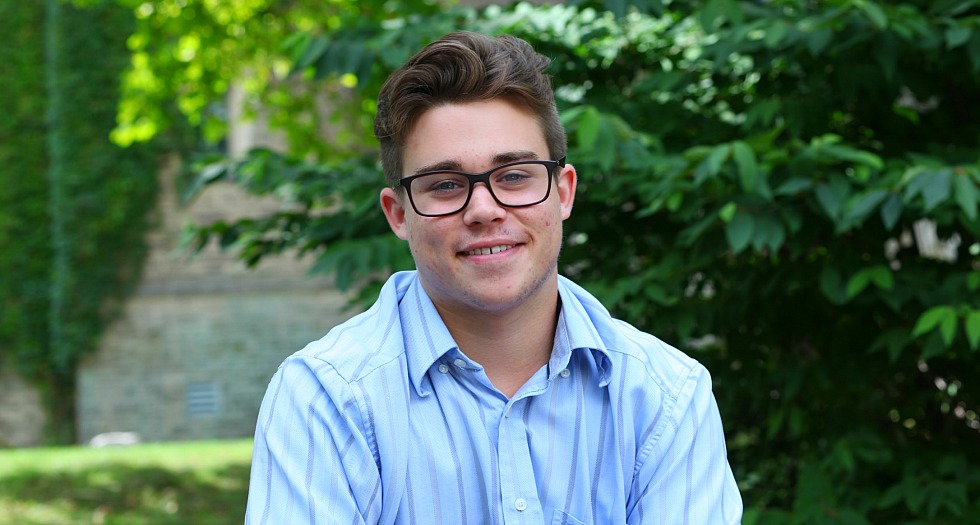First-year student offers hope to those struggling with addiction

Hunter Knight worked hard to overcome his drug addiction. Now he’s starting his first year at McMaster in Social Sciences, and hopes to one day, help others facing the same struggles.
In a lot of ways, Hunter Knight is like many of the other first-year students starting at McMaster this week.
He’s a successful student from a supportive family and a gifted athlete, who spent years playing hockey at a competitive level.
But Knight’s life has been anything but typical. For a time, his bright future was overshadowed by the nightmare of drug addiction.
Now, his message is one of hope.
“If you want to be successful, you can do it,” he says.
Knight sought treatment and has worked hard to overcome his addiction. Now he’s come to McMaster to study Social Sciences. His goal is to earn a degree in social work and, one day, become an addiction therapist.
“That’s the only thing I could see myself doing for the rest of my life. I want to help people who have been through the same thing I have,” says Knight, who knows first-hand how quickly an addiction can take hold.
For Knight, it all began with the death of a close family friend. “He was like a second father to me,” he says. “His death had a big impact on me, but I never really dealt with it properly.”
Then, after suffering his seventh concussion, he was forced to give up competitive hockey.
“I was used to playing hockey five days a week. When I lost that structure, it left me with a lot of free time and everything went on a downward spiral,” says Knight, who soon after began using marijuana, and eventually cocaine.
“Drugs are like a short getaway to forget about things, but once you stop doing the drugs, it just comes back,” he says.
“I would steal, lie. I didn’t know who I was anymore,” says Knight, whose wake-up call came following a night of heavy drug use that he says almost killed him.
“When I woke up in the morning I was absolutely destroyed from it all and I was like, ‘Is this really what I want to keep doing for the rest of my life?’ I knew if I kept doing this, I was either going to end up dead, or on the streets.”
That’s when, with the support of his family, he decided to seek treatment and shortly after, entered the Dave Smith Centre in Ottawa, his hometown.
“Dave Smith is the most amazing man I‘ve ever met– his Centre has saved lives,” says Knight. ‘They have a significant amount of structure. They have theme groups that help you learn how to cope – anger management skills, relapse prevention skills– all of that has helped me on the outside. It gave me a realization of what I can and can’t do.”
While he was in treatment, school became a lifeline for Knight, whose grades had slipped as a result of his addiction.
“I was doing school work probably eight hours a day. I gave it all I had. School gave me the motivation to succeed through treatment. I knew I had to stay clean so I could come to university and succeed,” says Knight who was able to finish his seven remaining high school courses in three months.
He applied to five universities and got into all of them. Although he’s happy to be here at McMaster, calling it his “dream school,” he’s says there are ups and downs in the recovery process and he’s mindful of the potential risks the social aspects of university life could pose to his recovery.
Knight will be living off-campus with family members in Waterdown, and avoids alcohol entirely, knowing that, for him, it can trigger drug use.
After all he’s been through, Knight is looking forward to starting a new chapter in his life. He’s using the coping skills he learned at the Dave Smith Centre to keep his life on track.
“I’ve got five courses this semester and I want to get good grades,” he says. “I know I need to focus on myself, staying healthy, staying structured, and finding healthy things to do on my free time like going to the gym or playing golf. For the rest of my life I’m not going to have this addiction beat entirely– I have to know what I can and can’t do so I don’t risk that.”


